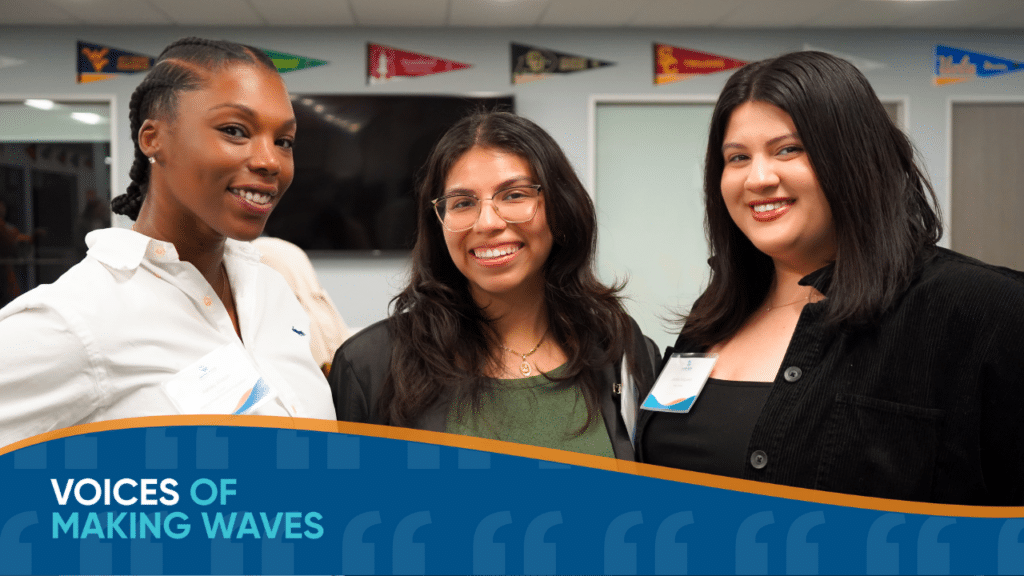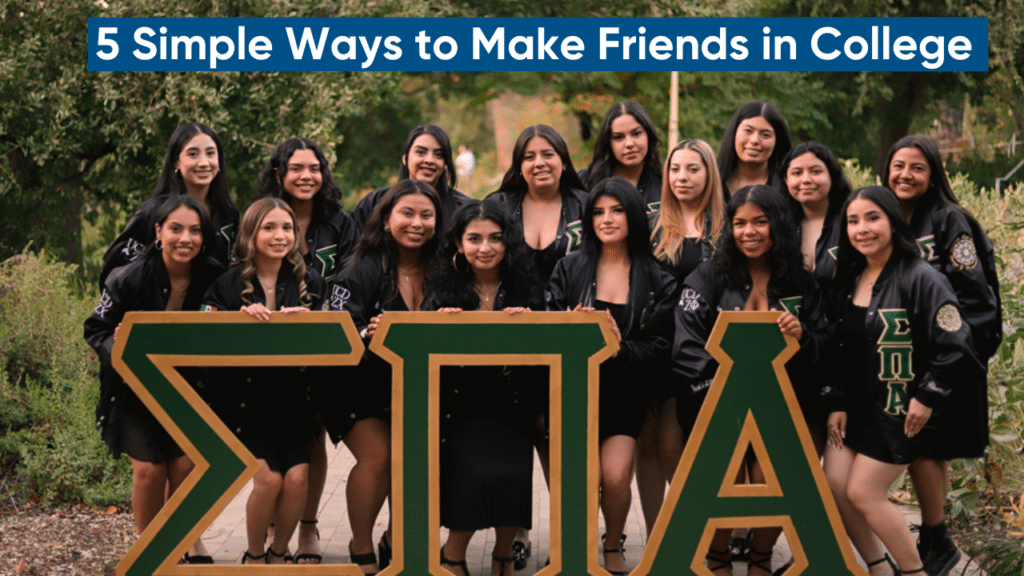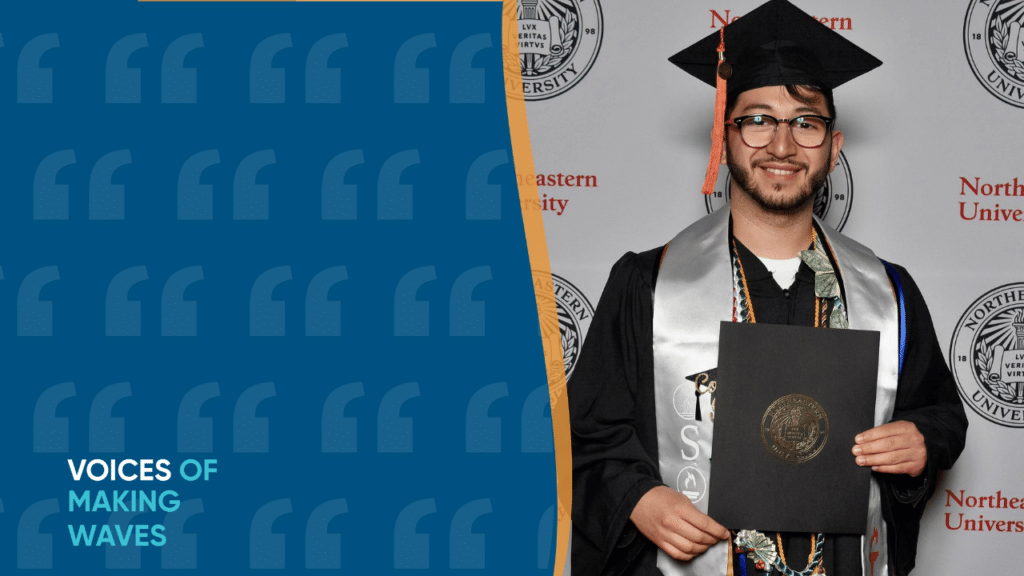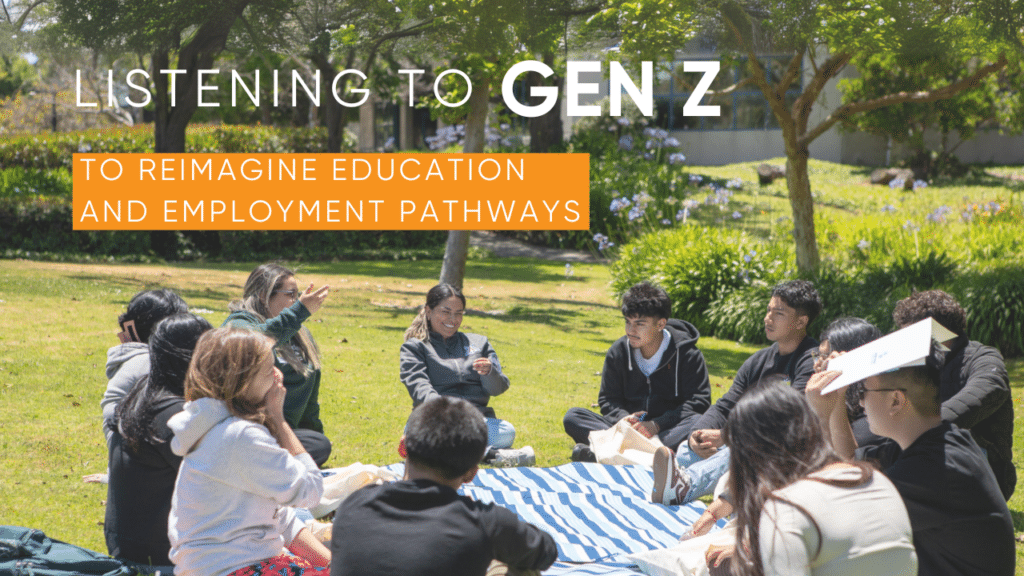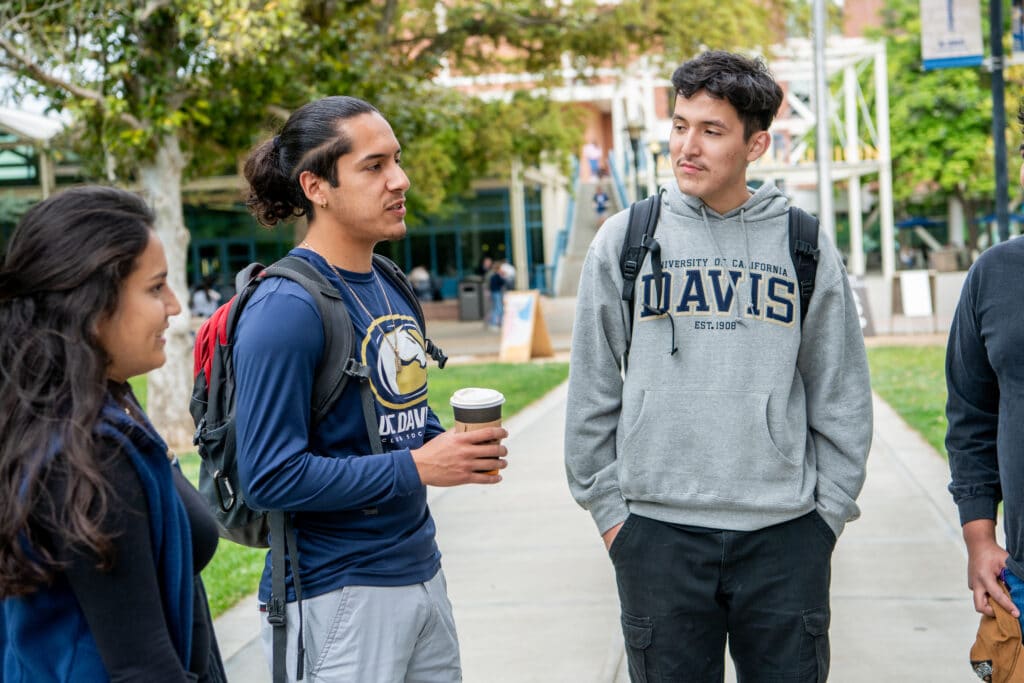
Free Campus Resources Every College Student Should Know
by Making Waves Education Foundation
College life is often equal parts exciting and challenging but being ‘in the know’ about free campus resources (yes, we said FREE) can make your journey a lot smoother.
First-generation students, students from low-income backgrounds, and students from historically under-represented backgrounds are statistically less likely to utilize campus resources for several reasons. Some are used to ‘taking care of things’ themselves, and some may assume services aren’t an option for them. Others may not realize the resource even exists, and some may worry about the stigma of asking for help. Many students are just overwhelmed with a deluge of information during their first few months of college. Between classes, making new friends, and adjusting to campus life, learning about campus resources lands last on the list.
Making Waves Education Foundation’s early career manager Kaitlyn Endo urges students to take initiative and make exploring campus resources a priority. She explains, “When I was a college student I didn’t use as many resources on campus as I should have. I encourage students to check out all free campus resources at least once – sometimes you’ll discover amazing opportunities and support you wouldn’t have known about otherwise.”
As you are settling into your classes and schedules make it a goal to visit and explore free campus resources at least once! From academic support to personal well-being and career development, there are services to help you thrive. Here are just some of the student resources you can find on campus.
- Tutoring Center 📚: academic assistance, including personalized help with challenging subjects, provided by fellow students or experienced instructors. 🎓
- Campus Library 📖: More than just a place to check out books, it provides access to textbooks, reference materials, academic journals, quiet study spaces, research assistance, and digital resources like streaming movies, e-books, and digital newspapers. 📚🖥️
- Writing Center 📝: Designed to help students improve their writing skills, offering assistance with essay structure, grammar, citation styles, and providing constructive feedback. 📄
- Campus Gym 💪: Provides state-of-the-art fitness equipment, group fitness classes, and opportunities for physical and mental well-being, including social activities and networking opportunities. 🏋️♂️🤸♀️
- Student Health Center 🏥: Offers accessible healthcare services, including routine check-ups, immunizations, telehealth appointments, counseling services, and nutrition advice, often with free or deeply discounted services for current students. 🩺
- Career Center 💼: Offers a variety of services, including workshops, career fairs, internship opportunities, networking events, career counseling, resume and cover letter assistance, and LinkedIn profile recommendations. 🌐
- IT Department 💻: Provides technical support for laptop and software issues, access to free or discounted software, and sometimes offers loaner laptops and access to computer labs. 🖥️
- Campus Food Pantry 🍎: Offers essential groceries and meal options to combat food insecurity, often through weekly food distribution events and programs focused on nutrition education. 🍽️
- Professor Office Hours 🎓: Opportunities to build relationships with professors, seek academic clarification, discuss interests, and receive mentorship and recommendation letters. 📚🤝
- EOP and Multicultural Centers 🌍: Offer academic support, advising, counseling, financial literacy information, cultural events, networking, leadership programs, identity-based support groups, and advocacy for underrepresented students, fostering academic success, personal growth, and cultural empowerment. 🌟
While we cannot guarantee every single resource listed here is available on every college campus, the majority will have services students can and should use. It is always worth asking! Do not miss out on valuable resources that can help make your college journey smoother.
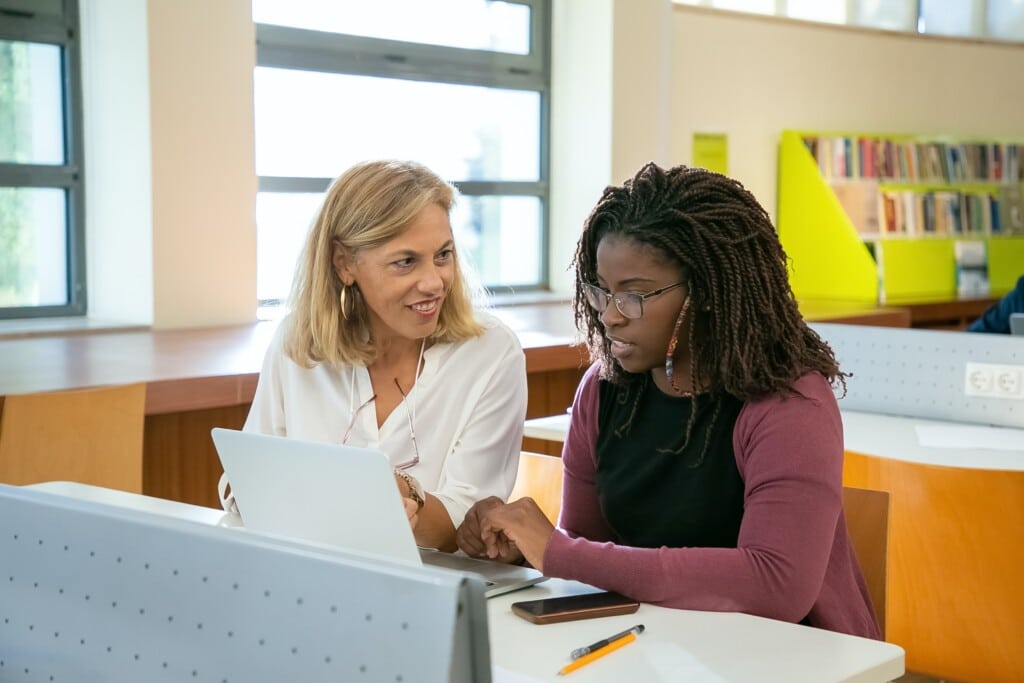
Tutoring Center
The tutoring center is a valuable resource for students seeking academic assistance, and we all can use help in at least one academic area! Whether you’re struggling with a specific subject or want to reinforce your understanding, tutoring sessions can provide free personalized help. Tutors are often fellow students or experienced instructors who excel in their respective fields. Don’t hesitate to reach out to the Tutoring Center whenever you need help grasping challenging concepts or preparing for exams.
Campus Library

The campus library is more than just a place to check out books and study! It’s a treasure trove of knowledge, research materials, and quiet study spaces. Utilize the library’s extensive collection of textbooks, reference materials, and academic journals to enhance your studies. The library is also an excellent place to find peace and focus, away from the distractions of dorm life.
- Need help with research? Campus libraries offer assistance free of charge, with in-person or virtual appointments. Some even offer 24/7 free chat service.
- Looking for something to read, watch, or listen? The library offers streaming access to thousands of movies, e-books and audiobooks. Just for being a student, you can get a free subscription to access digital newspapers like the New York Times and Wall Street Journal.
- Need some art for your dorm? Check your library. University of California Berkeley offers art for loan through their Graphic Arts Loan Collection. Students can borrow stunning framed artworks, including original lithographs, etchings, and woodblock prints.

Writing Center
Strong writing skills are essential for success in college and beyond. The Writing Center is designed to help students improve their writing abilities. Whether you need assistance with essay structure, grammar, or citation styles, Writing Center tutors can provide constructive feedback and valuable tips to refine your work.
Many centers offer drop-ins as well as scheduled in-person and online sessions!

Campus Gym
Maintaining physical health is vital for a balanced college experience. Campus gyms offer state-of-the-art equipment, and group fitness classes that can help you stay active and relieve stress. Regular exercise not only improves your physical well-being but also enhances mental clarity and boosts energy levels. Gym programming usually includes social activities like group classes, intramural tournaments or pickup games.
UC Davis college senior Elaine Fernandez highly recommends looking into the programming at campus gyms. She visits the gym multiple times a week and shares, “Aside from the physical health aspect of going to your on-campus gym, it’s an ideal place to get to network with people on your campus!”

Student Health Center
Your health is a top priority, and the Student Health Center is there to support you. From routine check-ups to managing minor illnesses and injuries, the health center provides accessible healthcare services to students. An amazing number of services are free / or deeply discounted if you are a current student.
- Immunizations
- Telehealth appointments
- Labs
- 24/7 nurse hotline
- Nutrition advice
- Group and 1:1 Counseling and Psychological Services
Be sure to take advantage of their resources to stay in good health and address any medical concerns promptly.

Career Center
Career centers are historically underutilized. It’s highly encouraged for students and alumni to check out their career center on campus. Though services vary from campus to campus, typically career centers will host:
- Workshops
- Career fairs
- Connect with Alumni
- Internship opportunities
- Networking events
- Industry Q&A’s
- 1:1 for career counseling
- Resume and cover letter assistance
- LinkedIn profile recommendations
Early career manager Kaitlyn Endo champions the campus career center and for good reason! “The great benefit of meeting with a campus career counselor is that they are typically the most informed on specific major/programs at the school, opportunities on campus, corporate partners that are known to hire alumni, and additional resources available to students. If you do anything at all, at the very least, sign up for your campus’ Handshake account for internship and early career opportunities!
IT Department

The campus IT department is a gold mine of support that is under-utilized by students. Okay, they’re not going to replace your phone screen when you drop it for the 3rd time this year, but they can help when you’re facing laptop issues (like an incredibly slow internet), need help with software, or require technical support. On top of that, IT also has access to free or deeply discounted software.
Some schools can even provide you with a loaner laptop and access to the campus computer lab. Don’t let technological hurdles hinder your academic progress; reach out to them for quick solutions.
Campus Food Pantry

Food insecurity is a reality for many students. If you find yourself in need, don’t hesitate to visit the campus food bank. These resources can provide essential groceries and meal options to ensure you have proper nutrition while focusing on your studies.
Many campuses host weekly food distribution events on campus as part of their Food Equity Initiative. Most of the food is nonperishable – donated from local grocery stores and with produce from the campus garden.
UC campuses have a program called CalFresh Healthy Living, which teaches people eligible for SNAP about good nutrition, how to make their food dollars stretch further, and how to be physically active.
Professor Office Hours
Building a strong relationship with your professors can be advantageous. Attend their office hours to seek clarification on course material, discuss academic interests, or seek advice on assignments. Establishing rapport with professors can lead to mentorship opportunities and recommendation letters for future endeavors.
Early Career Manager Kaityln Endo recommends going to office hours at least one time for each course you take, “Going to office hours can feel intimidating and maybe even a little awkward, but it can play a huge part in your college experience and beyond. My pro-tips: have your questions prepared and written down beforehand, and don’t be afraid to continue asking questions if things still feel unclear. That’s what they’re for!”
Endo shares the hidden benefits of attending office hours. “Aside from gaining clarity about a particular lecture or getting answers in preparation for a big assignment or test, office hours allow you and your professor to get to know each other better – it shows you’re serious about the class and gets you in front of your professor. Office hours could also present an opportunity to learn about your professors’ career path or gain career advice they may have in the particular area of study (informational interview). Sometimes professors will also share research or internship opportunities within their department, and if they get to know you well enough, they’ll be well informed to write you an impactful letter of recommendation for future opportunities, be it graduate school, opportunities on campus, etc.
EOP and Multicultural Centers
College Educational Opportunity Programs (EOP) and Multicultural Centers offer various free services including academic support such as tutoring and study groups, advising and counseling for academics, career, and personal issues, information on scholarships and financial literacy, community-building through cultural events and networking, leadership and personal development programs, access to resources like computer labs and study spaces, identity-based support groups, and advocacy for underrepresented students, all aimed at fostering academic success, personal growth, cultural celebration, and equity in higher education.
They also provide advising and counseling that recognizes the unique challenges faced by students from diverse backgrounds. Through cultural events, identity-based support groups, and celebrations, these centers foster a sense of belonging, understanding, and empowerment. By advocating for equity and social justice while offering resources like financial assistance, leadership opportunities, and community engagement, EOP and Multicultural Centers become invaluable havens that validate the experiences and aspirations of students, promoting not only educational success but also a deeper connection to their cultural identities.
Knowing about and utilizing these free campus resources can significantly enhance your college experience. Don’t’ let these gems remain undiscovered. Each of these resources plays a crucial role in helping you succeed in college and beyond. Make it a goal to visit each of these resources and discover what services would benefit you.
ABOUT MAKING WAVES Education FOUNDATION
At Making Waves, we are committed to educational equity. Making Waves Education Foundation is a Bay Area nonprofit that supports Making Waves Academy – a public charter school with more than 1,100 5th through 12th grade students – and leads college and career programming with more than 430 college students.
Knowing the opportunities that come with a college degree, we partner with historically underrepresented and underserved students to help make college affordable and graduation attainable. Centering the journeys of our students, our personalized approach includes college and career coaching, scholarships, and financial planning.
Our alumni network includes more than 730 college graduates, who earn their degrees and land jobs at more than twice the rate of their first-generation, low-income peers, with 85% graduating debt-free.

